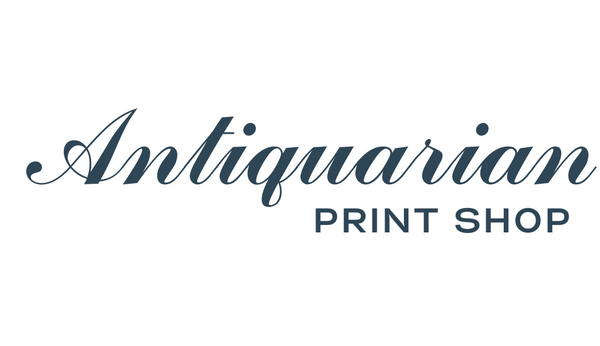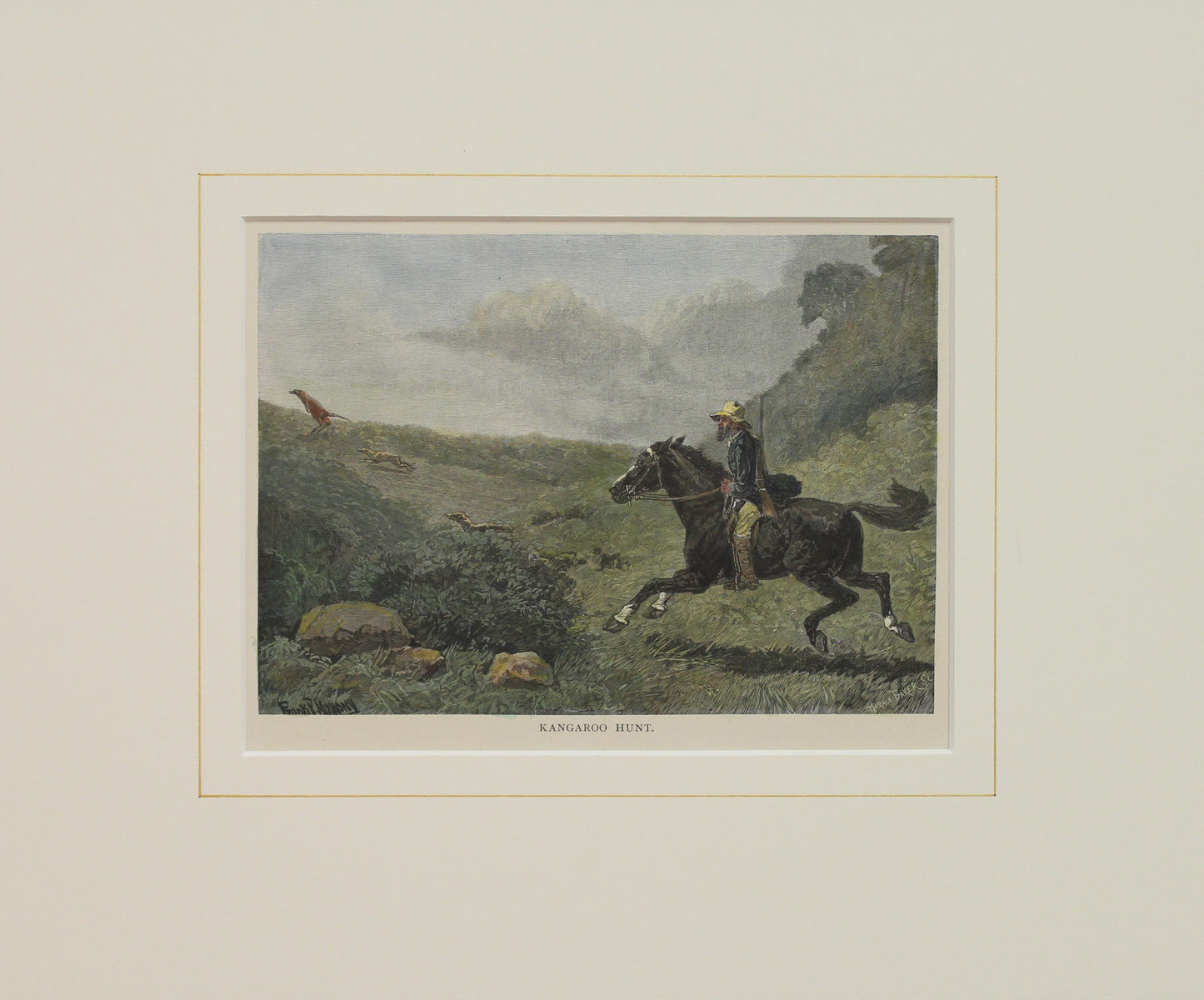Antiquarian Print Shop
Australia, The Kangaroo Hunt, c1886
Australia, The Kangaroo Hunt, c1886
Couldn't load pickup availability
From Garran's Picturesque Atlas of Australasia
Date: 1886
Artist: Mahoney Frank P
Engraver: Baker, Horace
Paper Size:180 x 135mm
Condition: very good
Technique: Woodcut with later hand colouring
Price: $60
Description: Original wood engraving with later hand colouring
Biography:
Mahoney, Francis Prout, also known as Frank Mahony, (1862 –1916) was an Australian painter, watercolorist and illustrator. Although christened "Francis Mahony", he later added "Prout" and usually signed his work as "Frank P. Mahony". It is apparently unknown why he chose to add "Prout".
Mahony was born in Melbourne, the third surviving child of Timothy Mahony, an Irish-born contractor, and his Cornish second wife Elizabeth, née Johns. He was taken to Sydney when 10 years old, where he started by working in an architect's office, then studied at the Academy of Art under Giulio Anivitti. His work as an artist began with his employment for the Picturesque Atlas of Australasia (1886), by Andrew Garran.
Mahony's work was accepted byThe Bulletin and he became known for his excellent drawings of horses. He also worked for The Antipodean, The Sydney Mail, and The Australian Town and Country Journal. in addition to his periodical work, he illustrated numerous books, including Where Dead Men Lie, and Other Poems, Where the Billy Boils by Henry Lawson, and Dot the Kangaroo, a children's book by Ethyl Pedley.
His oils were moderately successful. In 1889 his oil painting Rounding up a Straggler was bought for the Art Gallery of New South Wales. In 1895, he created the Society of Artists, Sydney and taught at the Art Society of New South Wales. As his reputation grew, he was initiated as one of the first members of the Dawn and Dusk Club, an erstwhile literary society that was mostly a social club. In 1897, he married a barmaid from Yass named Mary Tobin.
Mahony and Mary moved to England in 1901, but his career largely came to a halt. Despite efforts at self-promotion, he received very few commissions. His health deteriorated and he died of cancer in Kensington infirmary, London on 28 June 1916. He is best remembered as a capable painter of animals and is represented in the Sydney, Hobart, and Wanganui New Zealand galleries.


